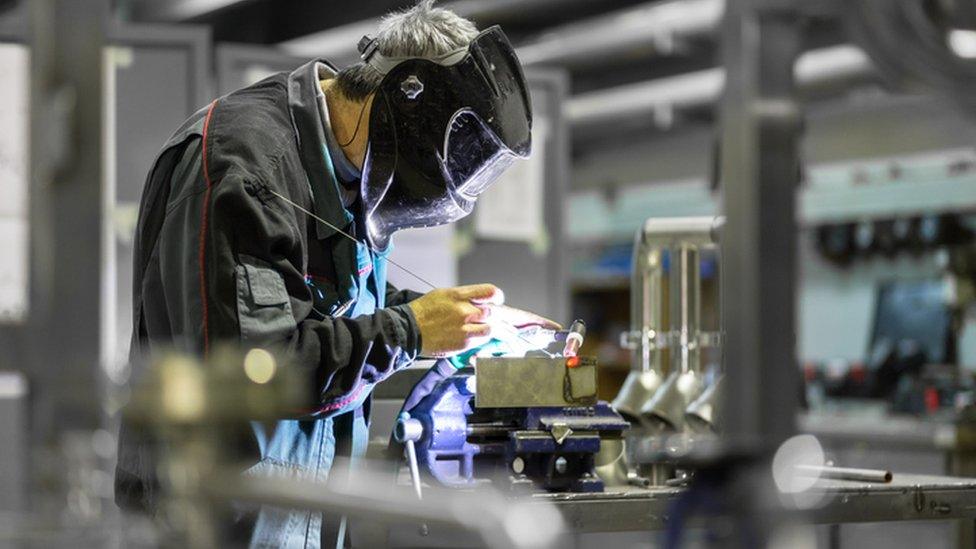Economic growth struggles as manufacturing dips
- Published
- comments

The economic "bounce-back" expected by the Bank of England is struggling to materialise, according to a leading economic forecaster.
The National Institute for Economic and Social Research (NIESR) said growth between March and May was just 0.2%,
The Office for National Statistics' official figures put growth at 0.1% for the first three months of the year.
Amit Kara, head of macro-economic forecasting at NIESR, said that the economy continued to "remain weak".
"Economic growth has slowed materially since the start of this year," Mr Kara said.
"One reason for sluggish growth is the disruption caused by severe weather in March, particularly to the construction sector.
"The latest data also shows a notable slowdown in manufacturing sector output that appears to be driven by both domestic and external conditions. By contrast, the retail sector and the dominant services sector may be recovering.
"Looking ahead, we expect the economy to strengthen from here mainly because monetary policy in the UK and elsewhere continue to remain accommodative.
"The risks to that outlook are, however, weighed to the downside.
"The most important of these remains Brexit but there are others, most notably an escalation of tensions in international trade and a potential flare-up in uncertainty in the Euro area because of political developments in Italy."
'Subdued'
NIESR 's growth figure follows new statistics from the ONS which reveal that manufacturing and construction output fell between February and April, the former at its fastest rate since 2012, raising fears the economy was not just hit by the bad weather of February and March.
"International demand continued to slow and the domestic market remained subdued," said Rob Kent-Smith, Head of National Accounts at the ONS.
Oil and gas production did bounce back following the re-opening of the key Forties pipeline which was shut down by technical problems in February.
The poor economic figures are likely to reduce the chances of an interest rate rise in August.
The Bank of England suggested last month that gradual interest rate rises were ahead if the economy strengthened after the poor 0.1% growth of January to March.
With that bounce-back now looking less likely, the chance of an imminent interest rate rise has receded and the pound weakened 0.3% in morning trading.
- Published10 May 2018